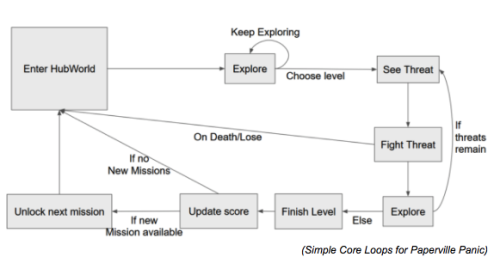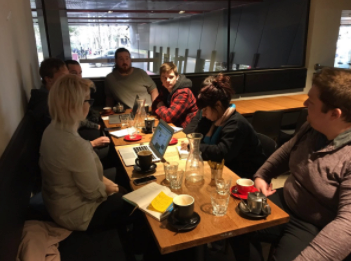Trending
Opinion: How will Project 2025 impact game developers?
The Heritage Foundation's manifesto for the possible next administration could do great harm to many, including large portions of the game development community.
Documentation is an essential in any team based environment, not only to be a guideline but also to be the answer to any questions someone may have about the general development of the game.

Hey guys, I’m Thomas.
I’m a developer at Ultimerse and a graduate from the Academy of Interactive Entertainment and I’m here to discuss some of the topics I feel are important in game dev; Documentation, Creative Thinking and Listening to your Team.
Documentation:
What I like to see when it comes to development is a bountiful amount of documentation. To me, it is an essential in any team based environment, not only to be a guideline but also to be the answer to any questions someone may have about the general development of the game.
I have personally struggled in many projects (even solo ones) if general documents haven’t been well thought out or constructed in the first place.
Documentation is important!
Some of the most crucial information that I find needs to be documented are:
A Simple Core Loop
Relevant Pipelines
General Design and Direction of the Game
Schedule
Checklist for tasks
(A core loop is a set of actions that determine how the game flows, it’s practically the games heart. It is what makes the game fun, exciting, challenging and anything else in between. When it comes to planning a game, this is one of the first things you should make!)
Documentation is an important asset to any developmental team and is crucial to make sure everyone is on the same page, so don’t underestimate it!
Assets:
One of the first lessons learned when it comes to general game dev is ‘thinking creatively’. For example, repurpose older assets, be resourceful. If you don’t have the right assets to fill up a scene to how you envision it, what I have found is that you shouldn’t be afraid to reuse assets in unique ways (like flipping them upside down) to get a similar effect. Until you have the newer assets, placeholders aren't a bad thing! Sometimes when things aren’t working, just hide them behind a giant wall and deal with it later during polish - this is always an option.
Feel:
How about if you want a cityscape setting but don’t have the scope to construct a whole city? By using some creative thinking - blocking off roads, making roads curved or even by limiting the camera position, you can create the feel of a living city, without having to allow the player to explore it.

Once More With Feeling!
All creative teams have different personality makeups and finding the right synergy can be tough. Everyone brings their own beliefs and values to the table, and discussion is the only way to filter through conflicting ideals. It’s important that everyone’s voice is heard and that everyone can make a contribution to the team. This doesn’t mean you’re not critical - but it’s about also being mindful that people put a lot of emotional investment into their creative work. Nothing is worse than feeling forgotten or helpless within a team, so always try to be an inclusive and as positive as possible!


Collaborating with other people has its moments, sometimes you can get on other people's nerves or say things you don't mean. However no matter what you do, always try to be inclusive, make sure everyone is involved in the project, that everyone is trying to think of cool ways to improve the game and the dev experience, and that EVERYTHING is documented. Take those extra steps to try to make the community a better and happier place! If you can get a team to agree on a documented, detailed plan, you can deal with any disagreements or roadblocks along the way with ease. It keeps everyone on track, accountable, and ready for action.
You’ll likely see more from myself in future, but please follow me on twitter at @TSafarewicz where we can discuss my professional weebhood.
Let's go Indie Game Dev!
You May Also Like